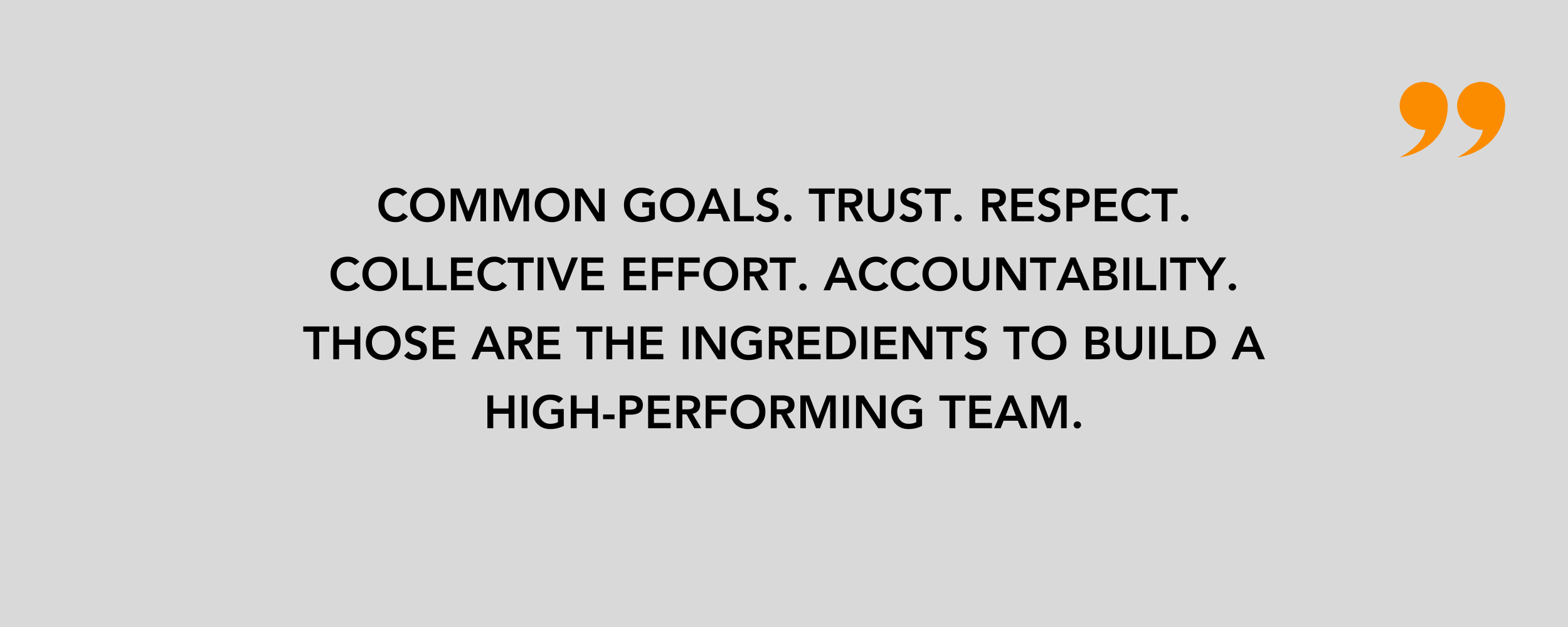
Rallying a group of individuals – with all it implies in terms of personalities, personal growth and character differences – can be challenging. A high-performing team is the ultimate weapon to achieve success, where unique strengths are put together as a whole, rather than joining parts as best you can.
Have you ever worked in a dysfunctional team?
I have and know: it’s a lot of hassle, it takes effort, it creates tension, stress or anxiety – overall, it’s just not fun.
A team might not be dysfunctional from day one. It is often the result of built-up frustration and individual attitudes. Some team members may be worried they will lose power and be out-shined. The team may lack a strong leader who can rally everyone around a common goal or doesn’t know how to improve the team morale.
Whichever the reasons the team is not functioning optimally, the job doesn’t get done, or at a higher price.
On the other hand, have you belonged to a winning, high-performing team?
Yes, that is fun and rewarding, both personally and professionally.
What makes the difference?

The 5 Characteristics of a High-Performing Team
1. They focus relentlessly on the future
Top teams are aligned around a common purpose. They develop a clear vision of where they want to go and what they are trying to accomplish. Strategic objectives are clear, so are roles and responsibilities.
2. They have each other’s back
It’s critical that each team member trust the intention of the others. This fosters collaboration, information sharing and creativity. The resulting camaraderie, transparency and bond is rewarding, not only in terms of output, but also in enjoyment.
3. They value and integrate differences
Great teams are well-rounded, precisely because each great team member is not. Each team member offers their individual strengths and talents which are valued by others.
4. They decide collectively and execute efficiently
Top teams are very productive in making decisions; each member is engaged in the decision-making process in various ways and committed to the outcome.
5. They support and hold each other accountable for results and behaviors
Individuals hold each other accountable for the agreements and actions. There is a clear set of behavioral norms and guidelines. It’s not as much about expectations as it is about clear objectives and attributions. Who is supposed to contribute what, in a given timeframe allows to keep the projects on track and heightens the sense of responsibility.
Common goals. Trust. Respect. Collective effort. Accountability. Those are the ingredients to build a high-performing team, which naturally lead to superior growth and efficiency.



